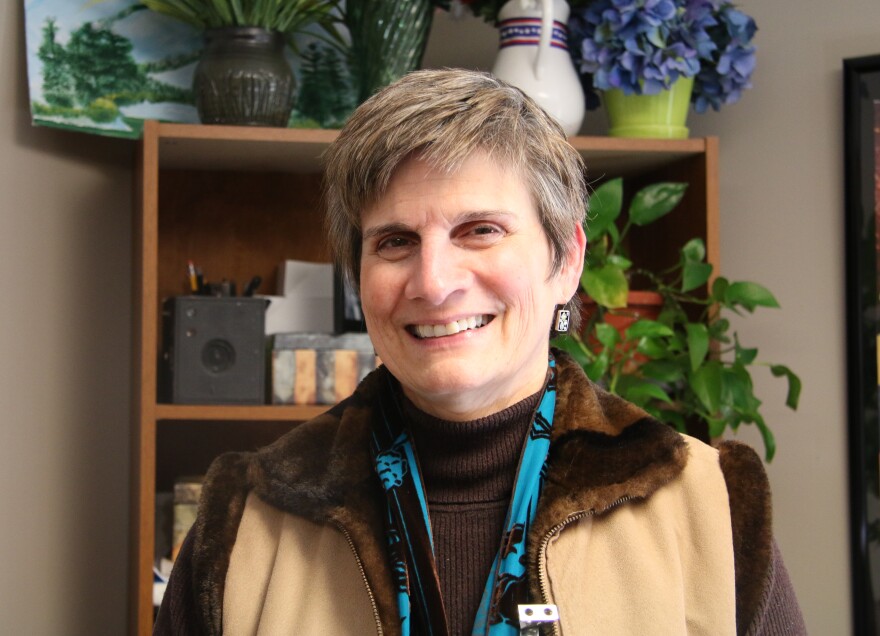Heather Harlan is an educator from Columbia/Boone County Public Health & Human Services.
She spoke about substance use disorders, as well as how medication-assisted treatment is a real option to consider for those affected.
Missouri Health Talks gathers Missourians’ stories of access to healthcare in their own words.
Heather Harlan: It's important for people to know that people can take advantage of medication-assisted treatment.
Chemicals have created a change in the brain and sometimes there are medications available that can help deal with withdrawal symptoms. It can help deal with cravings, and those can really help get a good start on recovery as a person begins to build different behavior patterns.
So, they're FDA approved medications that with counseling and behavioral therapies have better outcomes.
The counseling works on one part of the brain and the medication works on another part of the brain – so, you have better outcomes when you do that.
Some people like to have medication assisted recovery and go ahead and continue. Some people prefer for that to be a shorter term. That's a decision between the individual and their doctor.
But we would certainly want people to know that it's available to make early days of recovery more palatable and less uncomfortable and more inviting.
I think the more information that family members get, the more families learn about this – the more we as communities learn about it.
"A substance use disorder is also an illness. The primary organ affected is the brain."Heather Harlan
A substance use disorder is a chronic disease that changes the brain and it alters decision making, and therefore it affects behavior. We can have tools to treat and manage chronic illnesses, but we can't really cure them.
So, it's really sort of an expectation that there might be a reusing episode and for the family to be prepared to talk about what might happen. It doesn't automatically mean the person isn't serious about their recovery or doesn't want to. That's not true at all. It's just the nature of a chronic illness.
The other thing is to remember in other chronic illnesses, for example, diabetes. With diabetes, the primary organ affected is the pancreas, and if you're going to successfully treat or manage diabetes, you have to change your behavior, right?
You're not going to cure it, but you can manage it through changing your behavior.
A substance use disorder is also an illness. The primary organ affected is the brain.
That's what you need to change your behavior. So, the very thing that you need to change your behavior for any chronic situation is the brain, and that's what's affected.
So, for families to be prepared, it doesn't mean the individual didn't mean it, that they didn't want treatment. It's just that it's chronic. There may be more things to learn about how to manage it.
And yet, we're still treating substance use disorders as the fault of the individual looking at the environment.
So, I think wanting people to know we've known this for a long time. We know some things to do about it for us to have the personal, financial, spiritual, political will to move into.
So much of this suffering is preventable, and so much of it is we can treat and manage and to make those services available.



